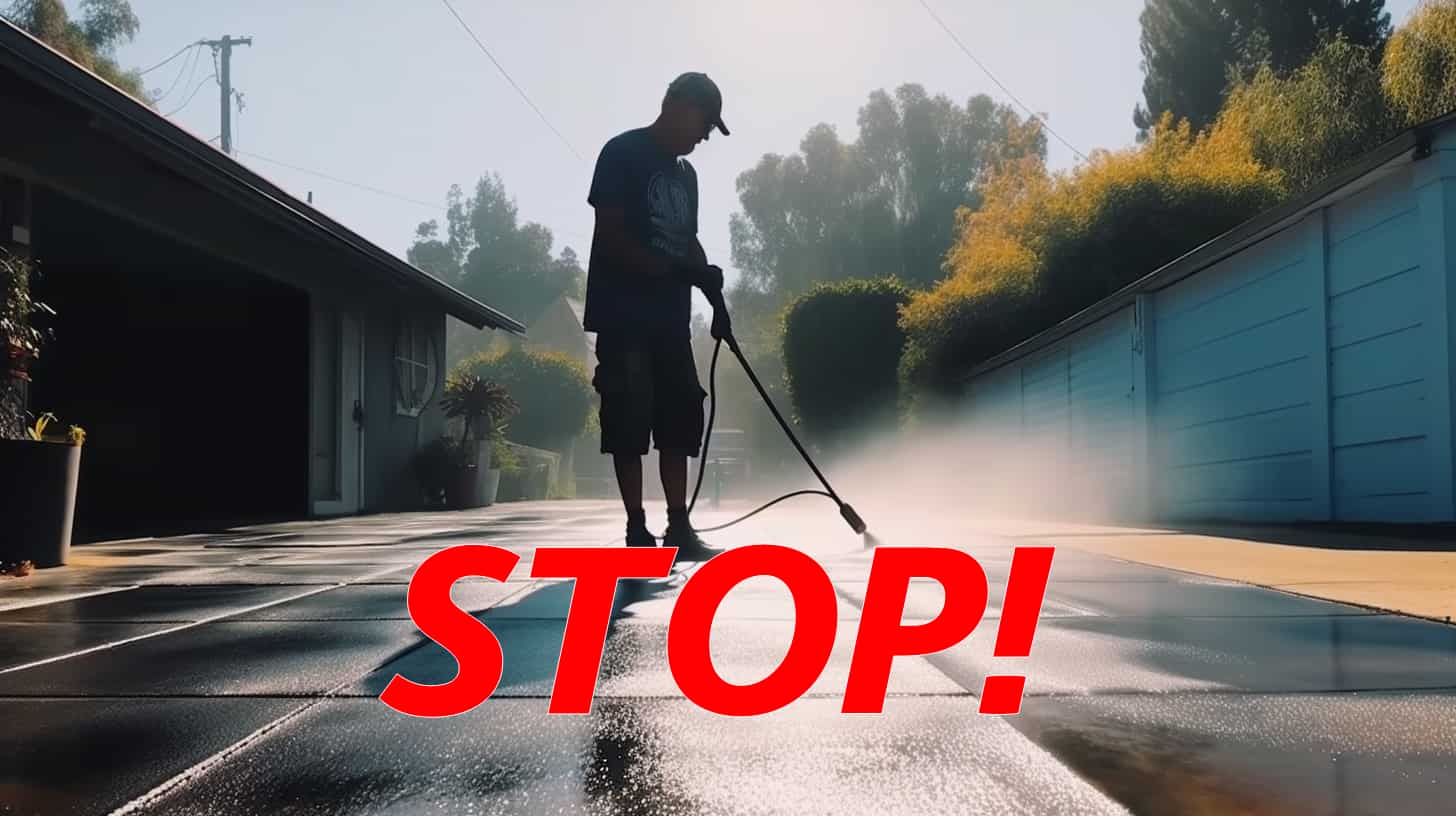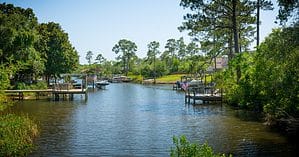Pressure washing may seem like an easy method to free your driveway of stains, grime, and dirt. However, beneath the shiny surface lies several reasons to reconsider reaching for that high-powered nozzle. Discover six reasons not to pressure wash your driveway. From surface damage to harmful runoff and safety concerns, uncover why this quick fix might not be the best choice for your driveway’s longevity and the well-being of your landscape.
1. Surface Damage
Pressure washing promises a clean driveway, but the quick method can introduce a different problem. The force of high-pressure water removes dirt and even some stubborn stains. However, it can also cause surface damage, and different driveway materials have varying levels of resilience.
Concrete, asphalt, pavers, and other surfaces react differently to intense pressure. The high-pressure spray can lead to cracks, pitting, and erosion, compromising the integrity of your driveway.
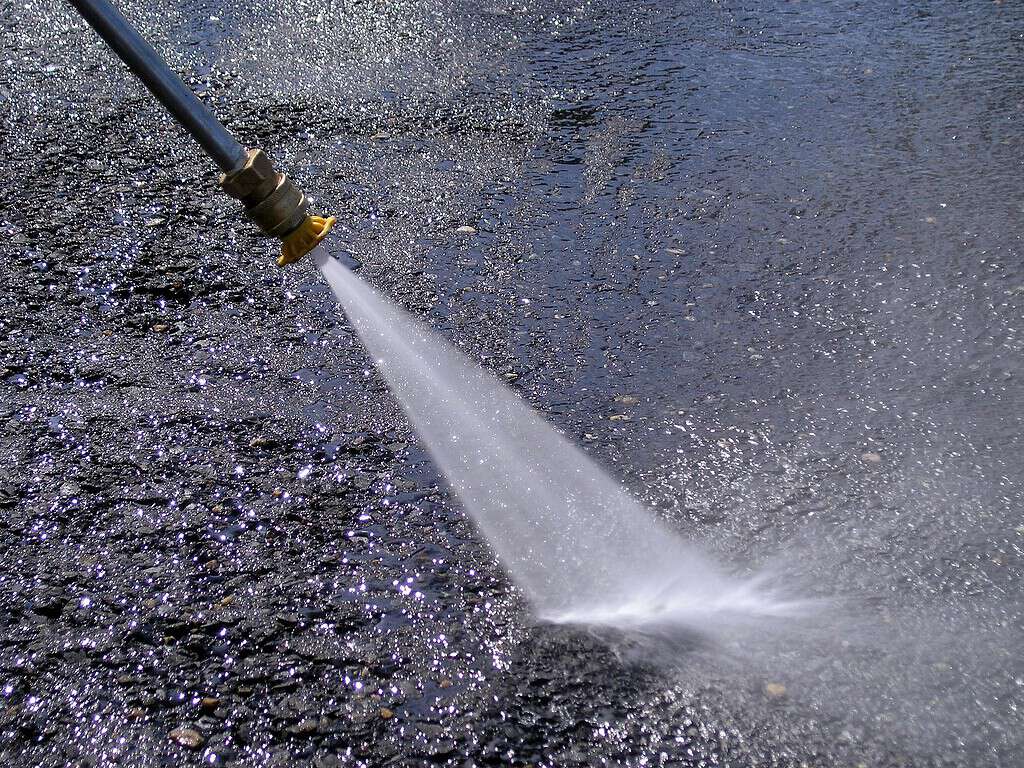
Pressure washing removes allergens like algae, mold, fungi, and dust.
©I, Mschel, CC BY-SA 3.0 , via Wikimedia Commons – Original / License
2. Water Waste
Water scarcity plagues many communities. While pressure washing can quickly eliminate dirt and stains, it also causes immense water waste. The high-pressure nozzles expel water at rates exceeding what is necessary for most cleaning jobs.
The average pressure washer uses up to 8 gallons of water per minute, and a single driveway cleaning session can easily consume hundreds of gallons of water, straining local water resources and contributing to higher water bills.
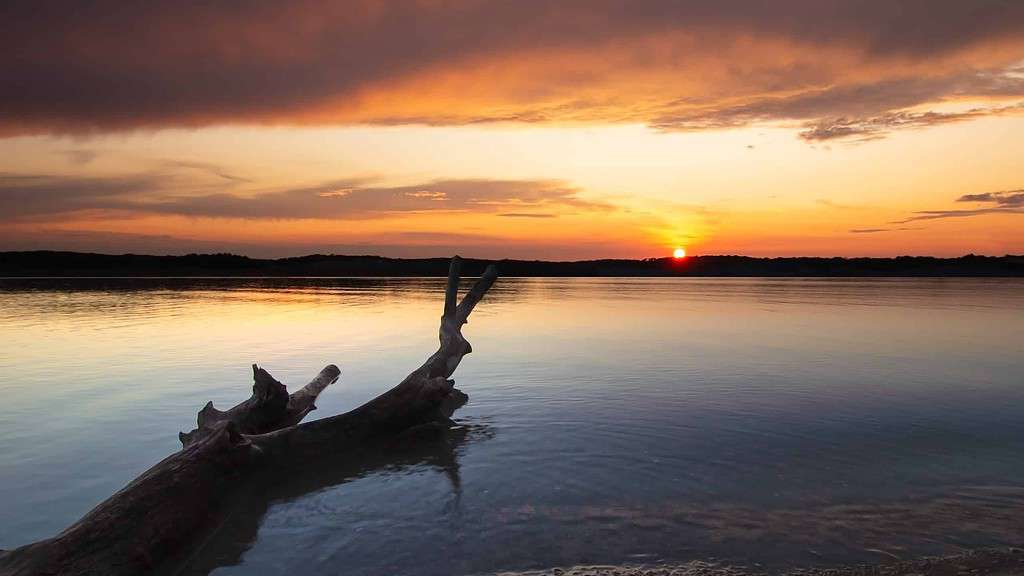
A leaky faucet wastes 100 gallons of water per day.
©Kimberly Boyles/Shutterstock.com
3. Chemical Runoff
Pressure washing is convenient, but it is crucial to be aware of chemical runoff when cleaning your driveway. Many homeowners use detergents and other cleaning agents alongside their pressure washers to enhance their effectiveness. Unfortunately, many times, these chemicals cause unintended harm to the environment.
Pressure washers dislodge dirt and grime but also carry away cleaning agents and harsh chemicals. When the runoff reaches the ground, it seeps into the soil and finds its way into nearby bodies of water, posing a risk to the local aquatic life and ecosystems. Chemical pollution has a lasting impact on delicate environments.
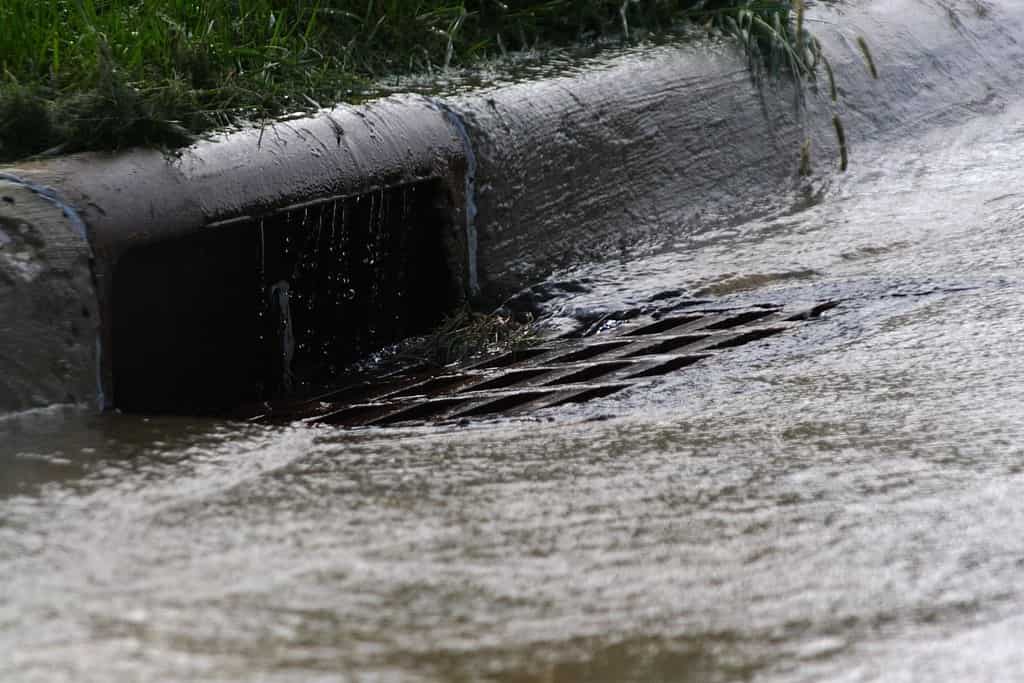
Lawn fertilizers, mulch, pesticides, and herbicides contribute to stormwater pollution.
©Robert Lawton, CC BY-SA 2.5 , via Wikimedia Commons – Original / License
4. Safety Concerns
The powerful force of pressure washing is satisfying, but it is important to acknowledge the safety concerns that come with the cleaning method. Lack of precautions can lead to severe injuries. The intense pressure produced by the machine can harm yourself, your neighbors, and your pets.
Similarly, the force can cause a loss of balance that leads to slips and falls. The heavy equipment can damage property like windows, vehicles, and landscape plants. Furthermore, protective gear is essential when pressure washing your driveway. Gear includes safety goggles, gloves, and adequate footwear.
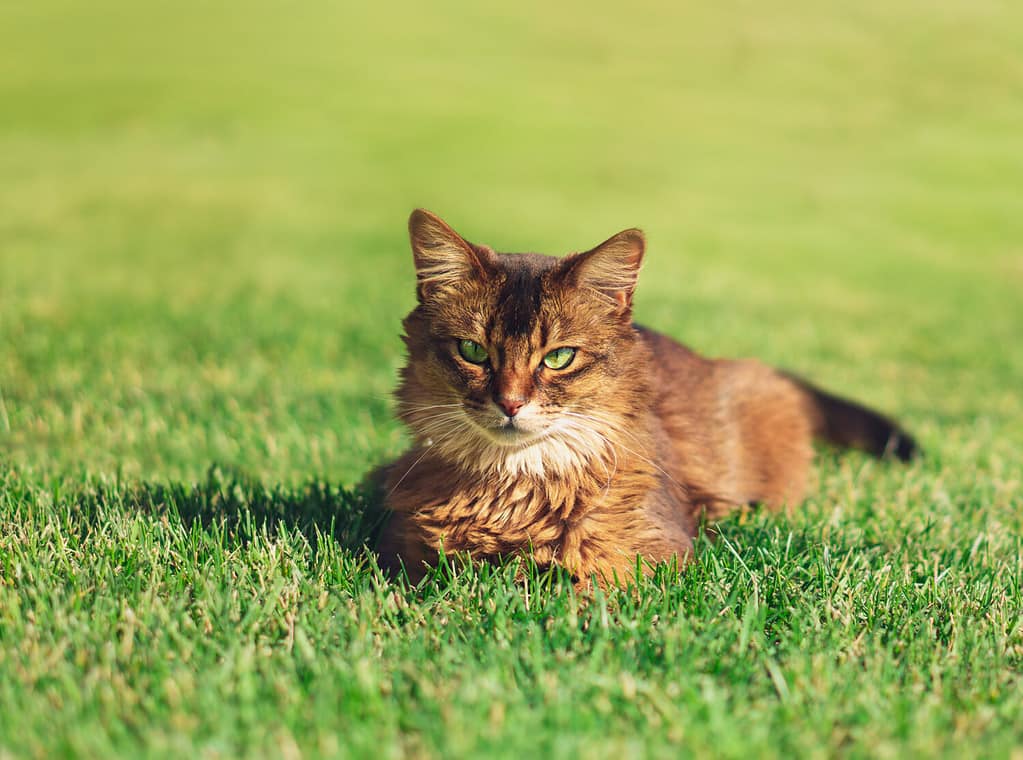
Keep pets away from freshly washed areas to ensure they do not drink from puddles containing chemicals.
©Louno Morose/Shutterstock.com
5. Impacts Surroundings
Pressure washers achieve a clean and polished driveway but lack precision, impacting surrounding areas. The powerful stream of water harms adjacent surfaces. A pressure washer dislodges paint, peels off stickers or decals, and damages delicate surfaces like wooden fences.
Additionally, it redistributes dirt and contaminants from your driveway to nearby spaces, including windows and outdoor furniture. Your driveway may seem shiny and new, but you will find yourself cleaning other areas later.

Prolonged water pressure strips away protective coatings and paint.
©Kristi Blokhin/Shutterstock.com
6. Damages Vegetation
The forceful blasts created by a pressure washer wreak havoc on your landscape’s vegetation. The water strips away leaves, damages delicate blooms, and uproots young plants. A pressure washer stresses your landscape, weakening your plants and leaving them susceptible to disease and pests.
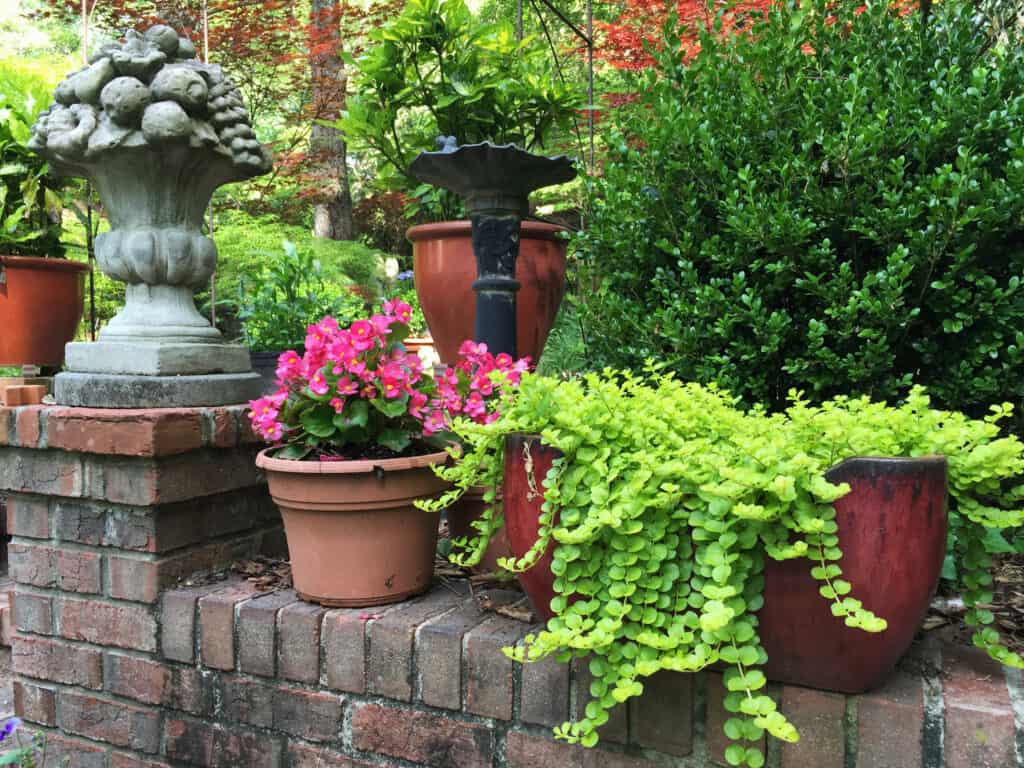
High-pressure water splatters soil and destroys plants.
©iStock.com/LCBallard
Tips for Using a Pressure Washer
By following a few tips, you can harness the benefits of a pressure washer while minimizing some of the negative impacts on surfaces, water resources, and your surroundings.
- Prevent surface damage: Adjust the pressure settings to match the type of surface you are cleaning. Always start with the lowest setting to reduce the risk of cracks and erosion.
- Minimize water waste: Use a pressure washer with an adjustable flow to regulate water usage.
- Prioritize your safety: Always wear protective gear, including safety goggles, gloves, and sturdy footwear, while maintaining a stable stance. Never point the nozzle at yourself or others.
- Protect your surroundings: Remove or cover delicate objects nearby. Shield windows, outdoor furniture, and plants to prevent damage.
- Safeguard your vegetation: Create a barrier with plastic sheets to protect landscape plants.
- Be mindful: Use a wide spray pattern and maintain a safe distance from the surface you are cleaning.
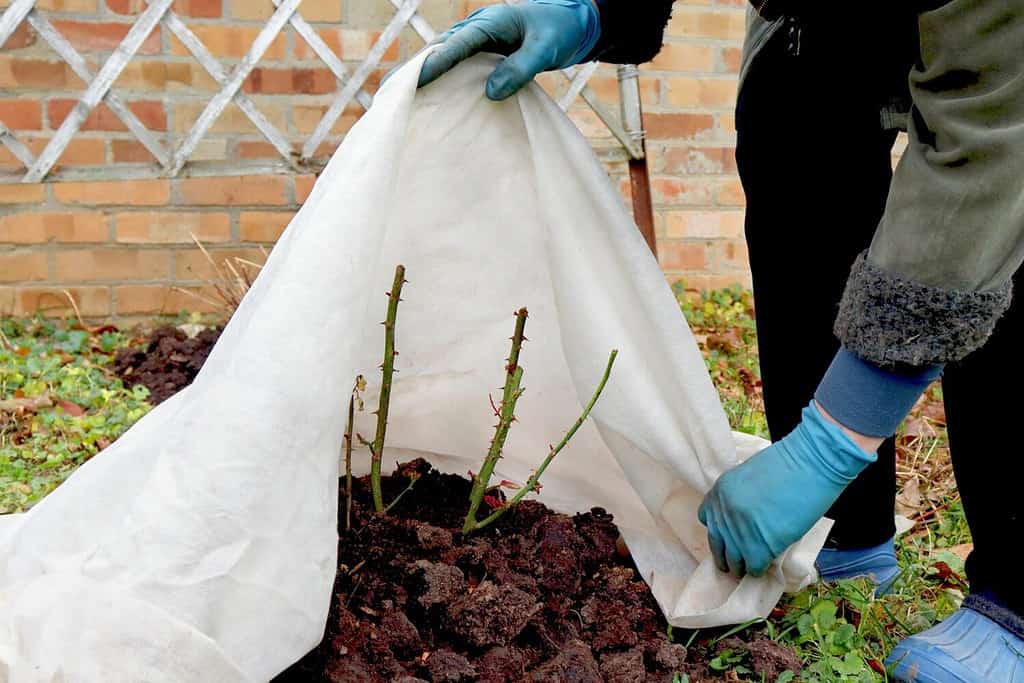
Cover delicate vegetation before pressure washing.
©Tasha-photo/Shutterstock.com
Pressure Washer Alternatives
Consider these pressure washer alternatives for a more eco-friendly approach. Before choosing the best method, consider the stains you are dealing with as well as the surface material of your driveway. Always patch-test a small, inconspicuous area to ensure compatibility and effectiveness.
- Broom and hose: A traditional broom and hose effectively remove loose dirt and debris without surface damage.
- Baking soda and vinegar solution: Create a paste of baking soda, vinegar, and water. Scrub stains and grime with the solution and a stiff brush before rinsing with your garden hose.
- Commercial driveway cleaner: Purchase an eco-friendly commercial cleaning solution from your local hardware store. Follow the instructions on the label to remove stubborn dirt and stains.
- Power scrubber attachment: Hose attachments with rotating heads provide mechanical scrubbing action without excessive pressure. The method is more effective than manual cleaning options but uses less water than a power washer.
- Steam cleaning: The heat and pressure of a steam cleaner sanitize and clean your driveway without chemicals.
- Enzyme cleaner: Break down organic matter and stains on your driveway with an eco-friendly enzyme cleaner.
- Professional cleaning services: Hire professional cleaning services specializing in driveway cleaning.
Pressure washing offers a satisfying and immediate solution to stubborn driveway stains. However, it is important to acknowledge the drawbacks and long-term damage caused by the high-pressure option. Consider gentler alternatives that protect your driveway’s integrity and contribute to water conservation.
Thank you for reading! Have some feedback for us? Contact the AZ Animals editorial team.

